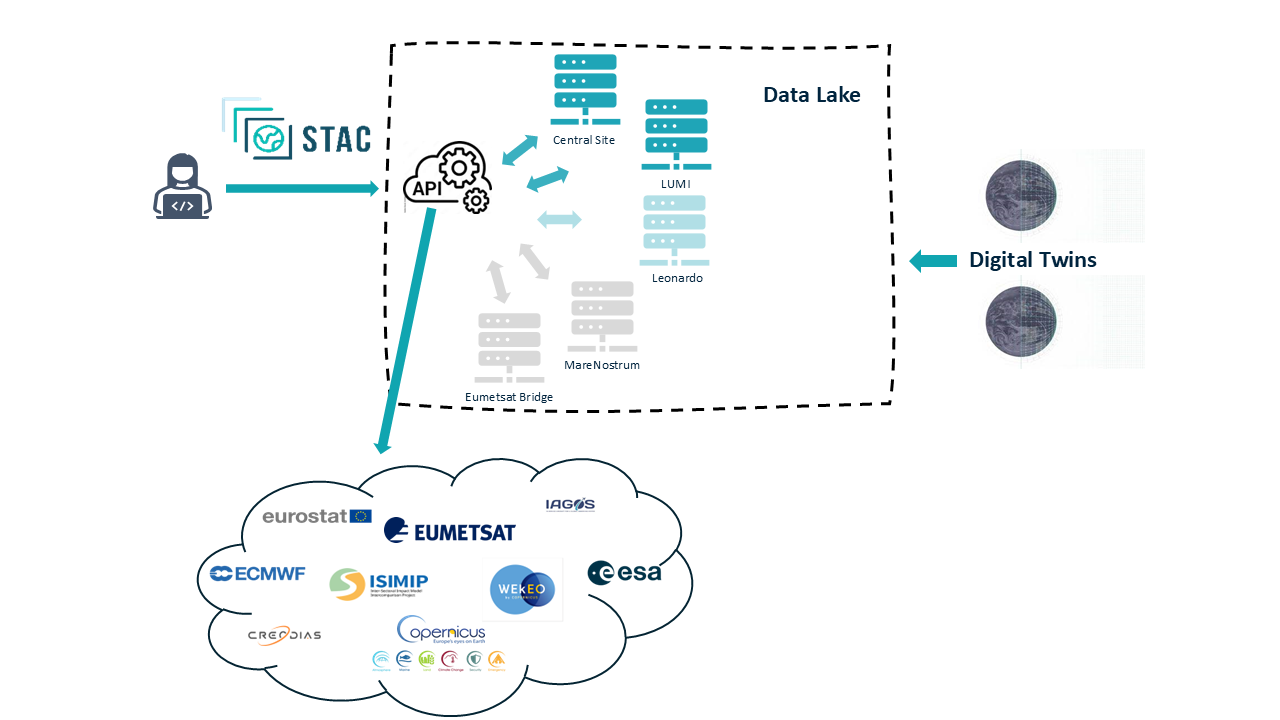Introduction
The purpose of this chapter is to describe the DEDL Discovery and Data Access services provided under the Destination Earth - Data Lake project.
Harmonised Data Access to DestinE Data Portfolio
Destination Earth Data Lake allows users to discover, search and access data from multiple sources.
- Digital Twin outputs - See Introduction
DT on Climate Change Adaptation
DT on Weather-induced and Geophysical Extremes
Federated Data Providers - See DestinE Data Portfolio
Fresh Data Pool (a rolling buffer of commonly used datasets) - See Fresh Data Pool
HDA (Harmonised Data Access)
The HDA service offers seamless access to both “DestinE Data” and “Federated Data”. The service is a REST-based API that enables users to search, discover, and access data from the DestinE Data portfolio, employing a federation model that integrates offerings from Federated Data Providers and co-localised data within the DestinE Data Lake.
HDA provides a STAC 1.0.0-compliant interface, allowing users to access datasets and services irrespective of the source protocol or access method, ensuring that the code used for data manipulation remains independent of the data source.
STAC is an open specification designed to improve the discovery, accessibility, and interoperability of geospatial data. Datasets are presented as STAC collections, along with the list of associated providers.
The HDA service allows:
Discovery of services and datasets with related metadata information
Search within datasets
Access data

EODAG - Earth Observation Data Access Gateway
EODAG (Earth Observation Data Access Gateway) is a command line tool and a Python package for searching and downloading remotely sensed images.
EODAG natively supports DEDL as a provider, allowing users to access Destination Earth data via its Python library or CLI client.
An EODAG extension for JupyterLab is also available in the Stack DEDL Service, see How to use EODAG in Destination Earth.
EODAG will help the scientific community and integrators to access and download Digital Twin data and federated data.
Polytope
Digital Twin Outputs in Destination Earth can be accessed using the DEDL provided Harmonised Data Access (HDA), but also the native polytope client. More details in this section: Polytope.
Fresh Data Pool
Fresh Data Pool is a cache for fast data discovery and access. More details in this section: Fresh Data Pool.